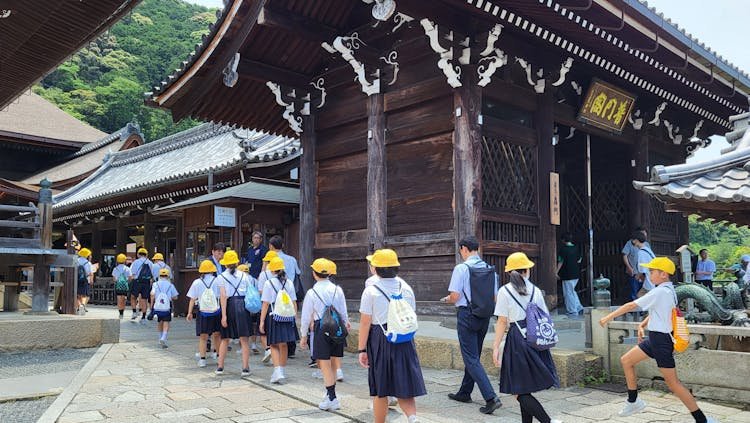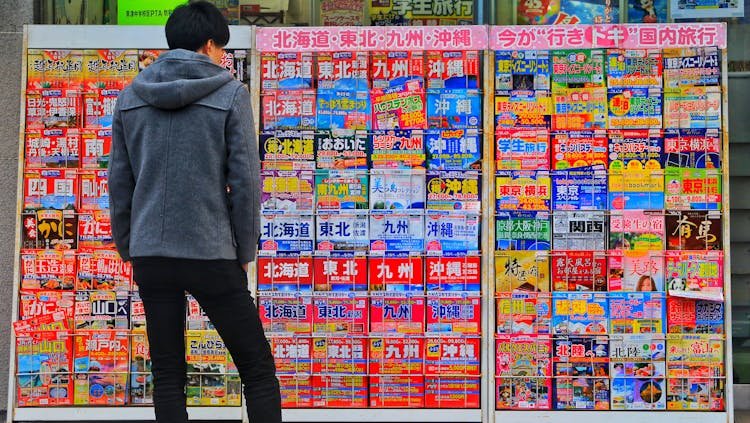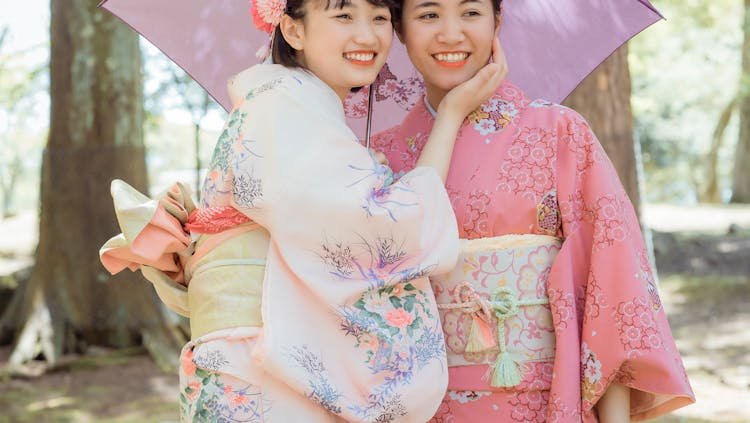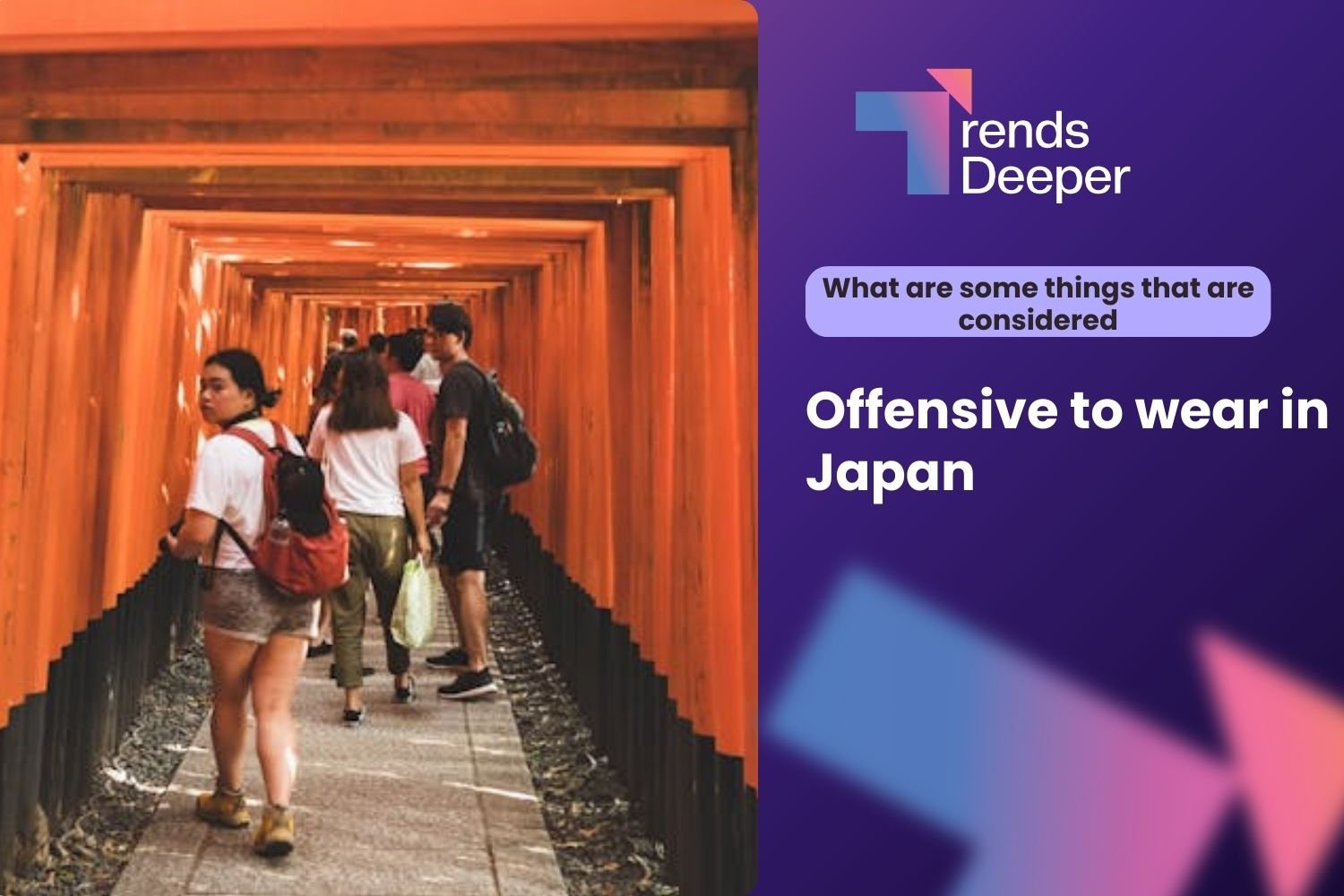I’ve been asked a lot about what to wear (or what not to wear) in Japan, especially when it comes to avoiding fashion faux pas. And I get it—Japan can be a bit of a mystery when it comes to cultural norms, and no one wants to unintentionally offend someone.
Now, before we dive in, let me just say: THIS IS NOT A CLOTHING RULE BOOK. Seriously, Japan isn’t going to throw you in fashion jail if you get it wrong.
Japan is a beautiful blend of tradition and modernity, and that extends to its fashion. While Japan has a vibrant and diverse fashion scene, particularly in cities like Tokyo, understanding cultural norms around clothing is essential. You don’t want to stand out for the wrong reasons, especially in a country that values politeness and harmony.
Now, let’s get into what you should avoid wearing in Japan, with a few tips on how to dress respectfully while still looking great.
Are Chains Acceptable Fashion in Japan?
In places like Harajuku, chains and bold accessories can be part of the street fashion. But in formal or more traditional environments, chains might be seen as inappropriate. Heavy chains and statement jewelry could carry connotations that make them unsuitable for everyday wear, especially in business or traditional settings. It’s safer to stick with simple, delicate accessories in those environments.
What Not to Wear in Japan
Japan places a high value on modesty and presentation. There are no strict dress codes for tourists, but it’s still wise to be respectful. Here are a few key things you should consider avoiding:
- Revealing Clothing: While Tokyo may seem like a fashion-forward city, overly revealing clothing can still be frowned upon. Showing too much skin, especially cleavage, can be seen as inappropriate in most public places. This is particularly important when visiting religious sites like temples and shrines.
- Offensive Clothing: Clothing with crude or controversial slogans or images is generally not well received in Japan. The country places a premium on politeness and social harmony. Wearing something offensive could be seen as a sign of disrespect.
- Dirty or Worn-Out Clothes: Japanese people take personal appearance seriously, even in casual settings. Wearing visibly dirty or worn-out clothes, such as old sneakers, is often considered sloppy. Keeping your clothes clean and neat will go a long way in maintaining a respectful appearance.
Can You Wear Joggers in Japan?
Joggers and sweatpants are considered too casual for most public settings in Japan. While you can technically wear them, they are generally reserved for the gym or lounging at home. Japanese culture tends to favor a more polished look, even for casual outings. Opt for smart-casual wear like jeans or tailored pants when you’re out and about. You’ll blend in better and avoid any unintended judgment.

What to Wear in Japan as a Man
Men in Japan tend to dress in a smart-casual or business-casual style, even when they’re just running errands. Here are some general guidelines for what men should wear:
- Smart Casual Clothing: Stick with neat, well-fitted clothing like jeans, chinos, or trousers paired with a clean shirt or blouse. Even in casual situations, looking polished is valued.
- Formal Events: When attending formal events, men should wear suits or at least slacks with a collared shirt. Japanese men often opt for more muted colors like navy, black, or grey. Avoid overly flashy attire unless you’re in a trendy fashion district.

Japanese Tight Clothes: How Tight Is Too Tight?
Japanese fashion can be tight-fitting, but modesty is still key. You’ll find tight clothing in trendy districts, but overly tight clothes that show too much skin may not be appropriate in more conservative areas. Particularly in professional or traditional settings, it’s better to go for fitted yet modest clothing.
Blouses in Japan: What You Need to Know
Blouses are a wardrobe staple for women in Japan, especially in formal or business settings. Blouses in Japan tend to be modest with higher necklines and longer sleeves. It’s less common to see sleeveless blouses or low-cut designs.

Shoes: Slip On, Slip Off
Shoes are a big deal in Japan because you’ll be taking them on and off frequently. Whether you’re entering a home, a temple, or certain restaurants, you’ll be expected to remove your shoes. To make life easier, wear shoes that are easy to slip on and off. Avoid anything with complicated buckles or laces. And be sure your socks are clean, as they’ll be on display often.
Offensive Clothing: General Guidelines
There isn’t an official list of offensive clothing in Japan, but certain things are worth avoiding. Avoid wearing anything with offensive language or imagery. Respectful dressing means thinking about how your clothing might affect others. In temples or more formal settings, modesty should guide your choices. Try to avoid outfits that show too much skin or are overly casual.
Cultural Sensitivity at Temples and Shrines
Japan’s temples and shrines are places of deep cultural and religious significance. When visiting, make an effort to dress respectfully. Women should avoid showing shoulders or wearing anything too revealing. Men should avoid overly casual clothes like tank tops or shorts. While there isn’t always an enforced dress code, it’s better to err on the side of modesty out of respect.
Perfume: Keep It Subtle (or Skip It)
Perfume isn’t as common in Japan as in other countries, particularly in public spaces. In crowded areas like trains or offices, strong fragrances can be seen as inconsiderate. When dining, especially in fine restaurants like sushi establishments, it’s best to avoid perfume entirely. Strong scents can interfere with the delicate aromas of the food, which is a key part of the experience.
Layers Are Your Best Friend in Japan
Japan’s climate can be extreme, with hot, humid summers and cold winters. Indoor temperatures often contrast sharply with the weather outside. In winter, layers are essential. You’ll need a warm coat for outside but something lighter indoors. In summer, light layers work best as air conditioning can be strong indoors, even when it’s scorching outside. Prepare accordingly and always have a light jacket or scarf on hand.


